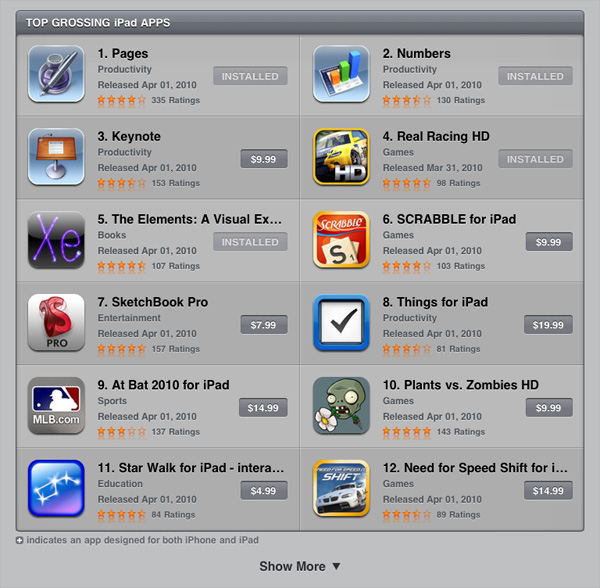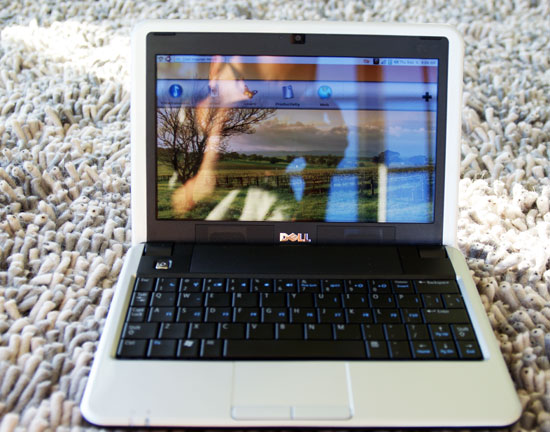Anand's Thoughts on Google's Chrome OS
by Anand Lal Shimpi on December 8, 2010 6:23 PM ESTFifteen years ago if you wanted to write an application that would run on over 90% of the world’s personal computers, you only needed to target one OS. Today, to do the same, you’d need to develop for ten - Windows, Linux, OS X, Android, iOS, webOS, BlackBerry OS, Symbian, MeeGo and of course, the web.
You don’t get order without first having chaos and you don’t end up with consolidation without first going through fragmentation. The PC era was dominated by Microsoft and Intel. The transition to ubiquitous computing allowed for many more competitors, which results in a great deal of fragmentation up front.
The goal however, is the same. Every player in this space wants to be what Microsoft was during the PC era. Even the actions are the same. There’s no interoperability between platforms, there are closed door negotiations and exclusivity agreements resulting in a number of alliances that are not easily broken.

Microsoft’s leverage is existing revenue stream. Its partners want to continue to receive favorable terms for existing PC shipments and thus tend to avoid embracing Google or other non-Microsoft OSes too eagerly. Google’s leverage is the promise of a very un-Microsoft future. Lower costs, friendlier terms and the ability for its partners to get in on the ground floor of something big. Neither approach is guaranteed and aligning yourself with one company is risky. The rest of the players are vertically integrated hardware vendors that are trying to mimic the success that Apple has had with iOS and OS X (e.g. HP/Palm, RIM). MeeGo is the only exception there as Intel/Nokia want it to be treated as an alternative to Android.
Then there’s the web. The most universal of all of the platforms, the web isn’t controlled or dominated by any one company. Great open source browser projects have ensured that nearly all of the platforms I listed above have great ways to access the web, and most can run any app you’ve got on the web.
PCs are the more traditional portal to the web. Sure they can do much more than run a web browser, but as web applications and services grow more powerful, the list of things you have to do outside of a browser window shrinks. This is especially true for mainstream consumers who check their email in a web browser, get their news in a web browser, chat in a web browser, watch videos in a web browser and listen to music, all within a browser window. In fact, the netbook was born out of the idea that you don’t need a huge transistor budget to provide the silicon that can drive a browser and the apps you run on top of it.
Fifteen years ago most households had one computer, if that. These days you might have five within a single room (desktop, notebook, smartphone, media streaming box and tablet). Households didn’t become infinitely more wealthy over the past two decades - the cost of these secondary and tertiary computing devices just dropped. Moore’s Law enables two things: more processing power at the same cost, or equivalent processing power at a lower cost. Iterate the Law a few times and you’ll eventually be able to create silicon that’s fast enough for specific tasks at a very low cost. Shrinking transistor feature sizes, costs and high levels of silicon integration gave us the fast enough ARM based SoCs that enable today’s awesome smartphones, as well as the Atom processor that created the netbook industry.

Interestingly enough, the problems that impact the high end of the market also impact this fast enough segment of the market. At the high end we’ve got tons of compute, storage and IOPS thanks to multicore CPUs/GPUs, low memory costs and SSDs, but we don’t have a lot of software to really tax it all. Believe it or not, the same gap exists at the low end. The difference is that while Atom is more than fast enough to run a web browser, it’s typically burdened by a heavy weight OS that hampers the user experience.










104 Comments
View All Comments
Iketh - Thursday, December 9, 2010 - link
never seen itRyan Smith - Thursday, December 9, 2010 - link
No, it is not. I'll talk to our ad people ASAP.GeorgeH - Thursday, December 9, 2010 - link
Cool. I wasn't fast enough to grab a screenshot or anything else, but FWIW it's exactly the same as the one Quicksilver posted (#23) in this thread:http://forums.anandtech.com/showthread.php?t=20882...
ProDigit - Wednesday, December 8, 2010 - link
Quote: "The leaders in computing in the 1970s and 1980s are mostly gone today"Yes,that's why the software today is more like bloatware!
In the early days software was created to function,and to be handy. Later, programs where improved in efficiency (lowest possible waste of time emulating or loading stuff) debugged and made to reach to a destination through various means (eg: some feats could be accessed by rightclicking the mouse, or taskbar,or hotkeys).
After that (the milennia) programs where created to look nice, often running gigabytes of information running through the RAM and graphics card, for very simple instructions that would take a few megabytes at most with older software (say for instance running the OS).
Now we're in an age where all these gigabytes are needed to be downloaded via the net.
Stupid I'd say, why would you want to download a program over and over again, everytime you want to use it? Why would you want your computer to upload data to the net to be used for 'cloud' computing?
As if a desktop does not have sufficient power, and your 1Mbit line has?
The older computer guru's should re-enter the software market, because many of the newer guys really are messing up big time,wasting resources, creating stuff that is not necessary.
If I wanted something that acts like linux, and looks like Linux, I would guess I would use linux. Not Chrome OS.
Morgalomaniac - Wednesday, December 8, 2010 - link
This seems like a mobile phone OS on a netbook.Listing the current batch of devices from entertainment to productivity we already have:
PMPs - Mobile Phones - Tablets - Netbooks - Laptops/PCs
Do we really need to wedge something in-between Tablets and Netbooks? And, if so, must we adopt yet another distinct operating system? I assume that Android and Chrome OS are in no way mutually compatible.
Currently I'm a little confused at how this is all supposed to fit together, but I guess I'll reassess when more details are released...
crazzeto - Wednesday, December 8, 2010 - link
I think the Chrome notebook is interesting, something of a curiosity but that's really all it is to me. Frankly it doesn't fit in anywhere as far as I can tell. Sure there's an argument that perhaps it's a netbook replacement (as anand suggests), but then.... Why not just get one of the many Tablets that are getting ready to flood the market right now? Frankly you'll get a far richer experince, with something that really makes a statement about being a unique product class.Chrome notebook seems to pretend to be a notebook computer, with out actually being one.... At least for me, I don't see the point of this. If I'm going to have a notebook, I want windows 7 (interesting how that's exactly what they were running for a good portion of that first video demo).
Honestly, this is something I really can't get excited about. I want a more powerful laptop with Windows 7, I want a tablet (probably the Moto Honeycomb tab).... But a Chrome notebook? Not so sure about that.
But then agian that's just me, and I hate trying to do real work on the web. Ironic that I'm a web developer by trade.
StormyParis - Wednesday, December 8, 2010 - link
100MB/mo free, which is not enough, for *** 2 years *** which is nowhere near the useful life of any PC. After that, it's $20/mo, which costs you more, per year, than a basic, much more versatile, netbook.the value in the Chrome proposition boggles my mind.
mi1stormilst - Wednesday, December 8, 2010 - link
The ipad offers $15 a month and $25 a month...this is the one thing I think that all partners should embrace for global adoption. Cheap, fast enough data plans with no contracts. If those awesome new Archos tablets had 3g built in for $9.99-$25.00 a month I would never need a phone again.mi1stormilst - Wednesday, December 8, 2010 - link
that this concept for an OS is utter failure without a network connection. So no 100MB will not be near enough if you are required to be connected to use the device. I live in Arizona in the Phoenix area and even in a huge metro population I have to constantly whip out my Cricket card for my laptop. If you plan on leaving it at home I suppose it may have a value as something to show your friends.JamaCheerio - Thursday, December 9, 2010 - link
This is exactly what all the people I inevitably end up helping NEED! My wife, My mom, my sisters, my bone headed friends, friends of my bone headed friends. "Dude, I think I have a virus..." You know the drill. Show up to some bloated notebook just barely able to boot up. And they all do the same exact things. "I check my email, search for stuff, shop online, go onFacebook, print boarding passes, look at photos, type something in Office."
If this pans out, I'm telling them all to get this. I just hope they have an elegant solution for photos & video...